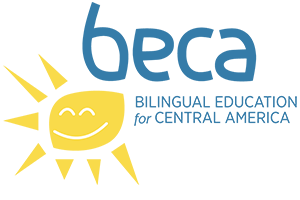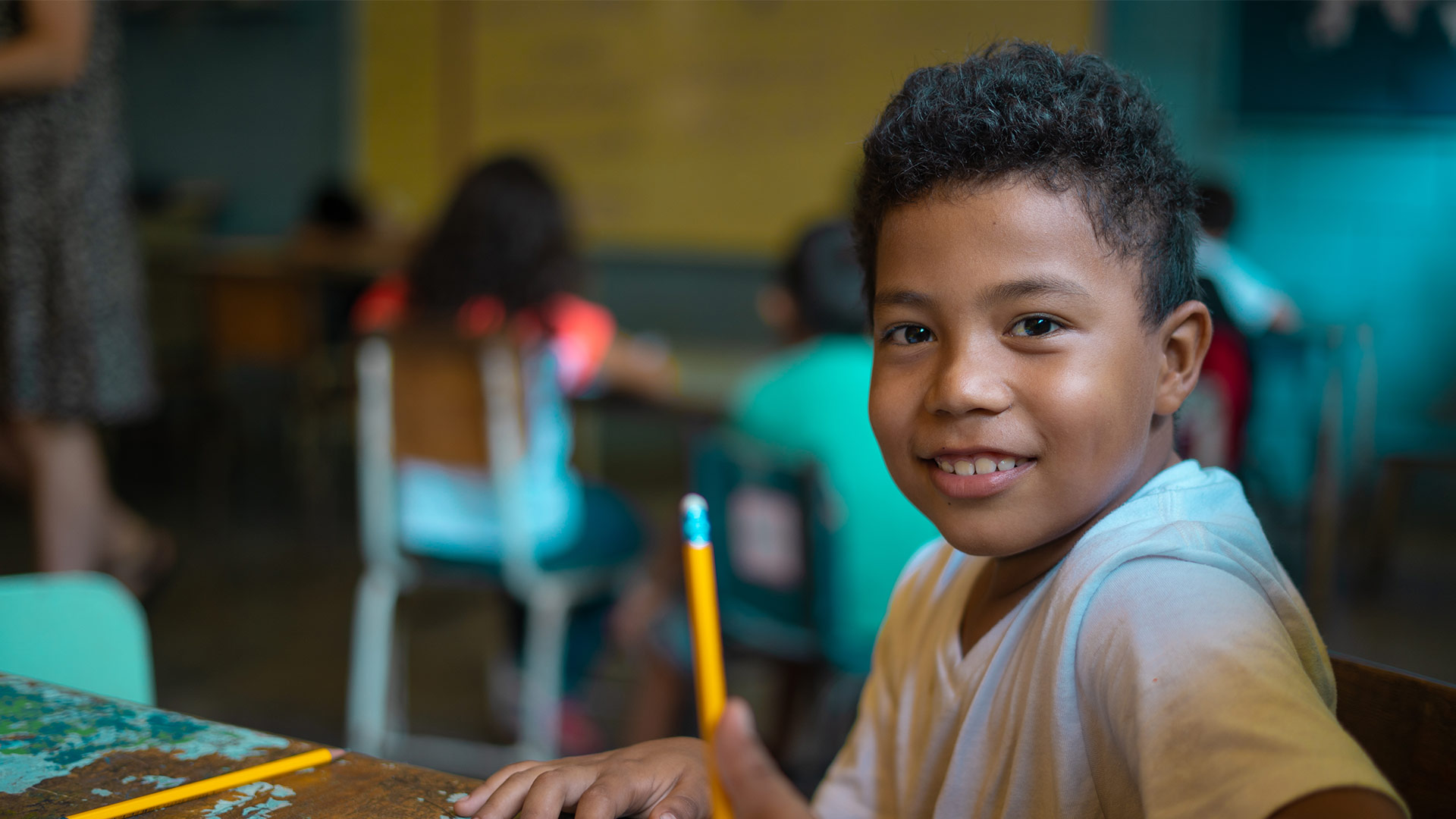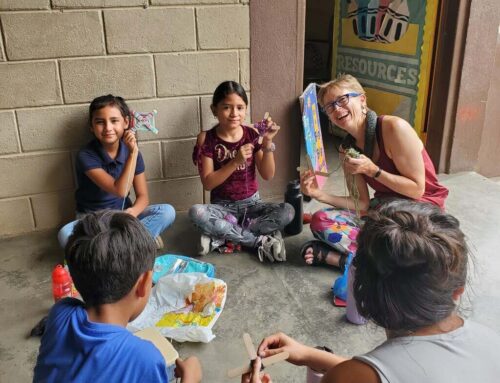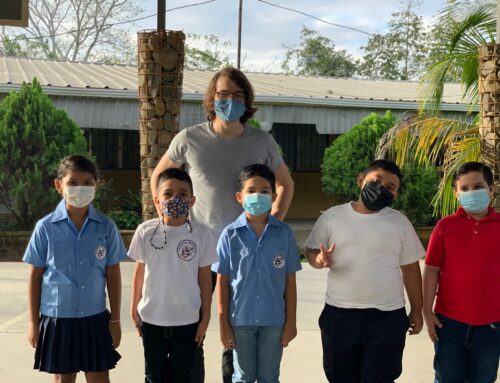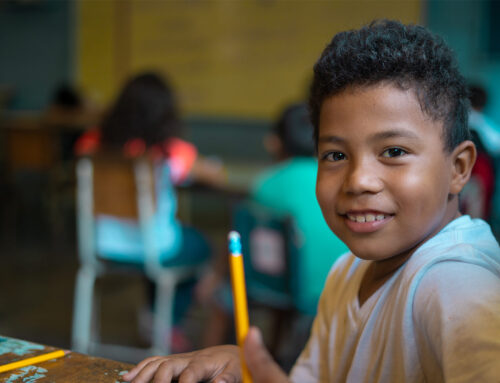How did you two meet?
Katie: We both taught at an international school in San Pedro Sula, Honduras in 2002. I had an apartment about 3 blocks from Mike’s and he used to walk me home on weekends after I hung out with friends in his apartment complex. My roommate ended up leaving and I moved into the apartment next door to Mike’s. We were very good friends first and eventually couldn’t deny that we both wanted to be more than just friends. It was all very romantic. I remember our first trip alone together. I met him in Antigua, Guatemala. I was so nervous getting off the bus wondering if he’d be where we planned to meet. This was all before cell phones. He was there. Still is.
Mike: At the time we were working at an international school. Katie and I were neighbors and slowly fell in love that year. All our Honduran friends keep telling us that love was simply “in the water” there for us. But then again, it’s not a good idea to drink anything but bottled water in Honduras so…
What made you decide to apply to teach with BECA?
Mike: Katie and I had met and lived in nearby San Pedro Sula about five years prior to applying for BECA. When we finally returned to the States, we carried the fondest of memories of our time in Honduras but couldn’t shake the feeling that we’d not done the real work that needed doing. When we began to look for an opportunity to return, BECA stood out for their integrity to mission and the truly community driven approach. We’ve never for a moment regretted that decision to apply.
Katie: For me, deciding to apply to teach with BECA was kind of like a last ditch effort at ‘saving the world’ before settling down to start a family. Our time before teaching overseas at international schools was a wonderful experience. We traveled extensively in Mexico and Central America but lived in kind of an insulated bubble of ‘gringo teachers’ teaching the rich kids. I wanted to know and experience how the other half lived and BECA seemed like the perfect organization to learn from – I felt like the job description for a BECA middle school English teacher and curriculum writer was the perfect way for me to use all of my previous experience to ‘make the world a better place.’ It seemed like it was meant to be from the moment we found the job descriptions on Idealist.org.
What did you teach while in Honduras?
Katie: Upper School English Language Arts teacher, ELA Curriculum Coordinator.
Mike: I served as the Program Administrator at San Jeronimo Bilingual School.
Describe your favorite moment in the classroom or outside of school.
Katie: Classroom – We had Friday Funday every Friday afternoon as an Upper School (7-9 grades). KatieMac (Science) and Brian (Math) and I would hand out awards and then play a silly game with all the kids. It was such a great way to end the week. Outside of school – Oh, how I loved to cook a meal with my cooking team (Mike, KatieMac, Tim, Me) for the rest of the team. Planning, going to the market, prepping, sharing a meal with my BECA family – It made me so happy to do this simple act of preparing a meal for the people I loved. I would be so tired after such a long day and the conversation and laughter and company at supper time bolstered me to keep on keeping on.
Mike: So many great, hands on projects with the scholarship families. Side by side, we cut the grass with machetes, mixed cement by hand and decorated classrooms for the holidays. I made lasting friendships with those families and what I learned from them informs who I try to be as a parent today.
How did your expectations before teaching with BECA differ from the reality?
Katie: I thought the school would feel really desperate without necessary supplies and that the students would be sad. What I remember most is the feeling of pure joy when I opened the gate to SJBS each morning. It was such a happy and lively place and the students were (and are) so full of hope. That feeling when I opened the gate never went away for the entire school year. It was magical. I expected it to be sort of depressing. The opposite was true.
Mike: I’d been told how much the parents contributed to the leadership and operation of the schools but didn’t really get it until working there for a few months. It’s truly an equal footing partnership. That’s the very basis for BECA’s success.
Describe your BECA experience in one word.
Katie: Life-changingMike: Hot and sweaty … wait that’s two words … okay then, volunteering for BECA is purposeful.
What would you say to potential applicants?
Katie: There are lots of different opportunities available for you to live and teach abroad. What makes BECA different? What makes BECA different is its community-based approach. This organization doesn’t pretend to know the solution to Honduras’s problems. We aren’t trying to impose what we believe will work onto the parents and students of the BECA community. Instead we work hand-in-hand with our partners and empower them. In turn, as a volunteer you learn so much more – SO much more – than you teach. You will be part of an organization with its heart in the right place and that will change how you live in this world forever. Long after your year volunteering is up.
Mike: BECA will require from you every drop you’re willing and able to give…and you’ll be rewarded ten-fold.
